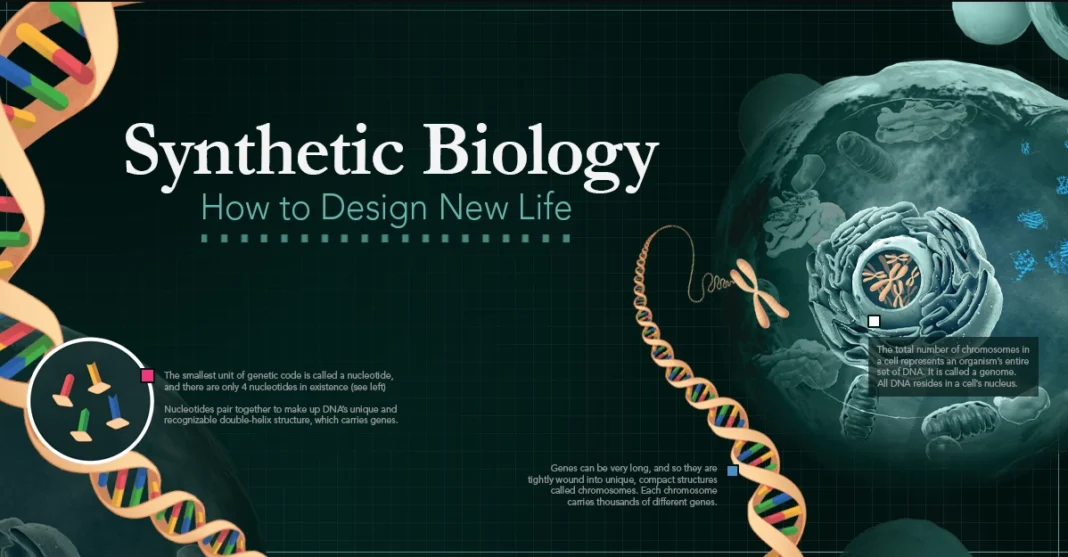A world where man-made life forms replace natural organisms, heralding a posthuman era of synthetic humanoids – sounds like the plot of a dystopian science fiction movie, right? According to Celeste Solum, a former Homeland Security and FEMA contractor, this isn’t just a fictional narrative.
The Asilomar Decision and Posthuman Ideology
In the aftermath of the Covid-19 pandemic, we’ve witnessed a paradigm shift. Researchers employing directed evolution and experimental evolution are advancing their endeavors to genetically modify all life on earth. At the heart of this research is synthetic biology, which intends to replace all natural life forms with man-made alternatives.
Solum divulged during an interview with Zeee Media that this intent can be traced back to 1975. At an Asilomar Conference, a controversial decision was made to genetically modify all life on Earth. According to Solum, “finding the genome was not about [solving] the mysteries; it was about the exploitation of our genetic code.”
The Revelation from FEMA
Celeste Solum’s credentials with Homeland Security and FEMA lend weight to her claims. Her assignments ranged from responding to 911 to participating in flood and earthquake operations and mass casualty exercises. However, her tenure with “the agencies” ended abruptly when asked to do something that violated her personal ethos.
During her interview with Solum, Zeee also discussed two vital sources: the US Senate bill S4488 from 2022 and DARPA’s Cornucopia program. Solum referred to the International Barcode of Life (IBOL), a Rockefeller initiative. IBOL aims to reclassify all life on Earth based on DNA rather than natural characteristics. The term used for natural humans in this new classification is the “old humans,” a group they curiously liken to dinosaurs.
By 2025, the proponents of this initiative want the “old humans” eradicated, replaced by laboratory-engineered humans. This shift aligns with the World Economic Forum’s stance that by 2025, we should not extract anything from nature; everything we consume will be lab-generated.
The Hidden Threat in S4488 Bill
A glance at the S4488 Bill: The ‘Global Catastrophic Risk Management Act of 2022‘ reveals chilling revelations. Though the bill never became law, it was passed to the Department of Homeland Security (DHS), FEMA, and DARPA for management. Solum alleges that the legislation was segmented and concealed in different bills to prevent people from connecting the dots.
DARPA’s Cornucopia – A Feast or Famine?

DARPA’s Cornucopia programme epitomizes the advance of synthetic biology. Operational since February 2023, Cornucopia contracted three teams to produce microbial biomass encompassing all four human dietary macronutrients.
The goal?
Not just an alternative to meat and dairy, but a complete, molecularly deconstructed diet.
The Synthetic Future – Benefit or Detriment?
While supporters of synthetic biology and the push for a posthuman era posit this as an evolution for mankind, critics, like Solum, see it as a catastrophic risk. In their view, the manipulation of our biological nature and the environment could lead to unforeseen global consequences.
The “developing” (or, as some argue, “un-developing“) of life forms, and the rapid advancement of synthetic biology, necessitate a global conversation on ethical boundaries. The trajectory of this technology seems unstoppable, but at what cost? As synthetic biology continues to challenge our conception of life and human existence, perhaps it’s time to re-evaluate the world we’re creating for future generations.
In a world veering towards synthetic life forms and laboratory-engineered food, the implications for our relationship with nature, our bodies, and indeed, our humanity are profound and unsettling. In the grand scheme of things, this posthuman reality might be closer than we think, and far more tangible than the realm of sci-fi movies.
Are we ready for this brave new world?
Only time will tell.





